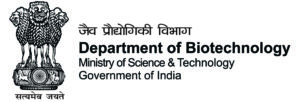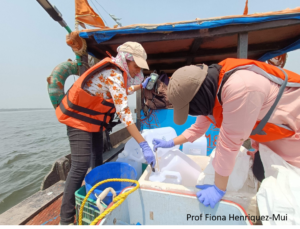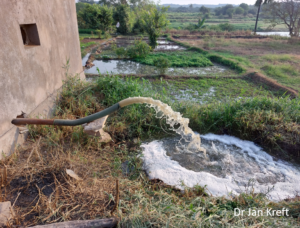

Antimicrobial Resistance -India Programme Coordination Team (PCT)

We are a team of UK and Indian researchers. We are working together to tackle the rising prevalence of antimicrobial resistance (AMR) in the environment. Research has shown that high levels of antibiotics, antibiotic resistant bacteria and antibiotic resistant genes are present in environmental compartments around the world. This creates the conditions for resistant bacteria to proliferate.
Our programme is focused on the current situation in India, as a major producer of antimicrobials in the global supply chain of the pharmaceutical industry. It remains unclear as to the extent to which antimicrobial production waste released into the environment contributes to the development of AMR.
UK and Indian research councils have joined forces to directly address these concerns. Sampling and sample analysis, by our five academic research teams, is currently underway in India. Our interest is broad and multidisciplinary, covering research areas such as environmental science, microbiology and policy development.
For further information about our programme please contact:
Dr Laura Carter: [email protected]
Find out more about our programme:
This video is also available with subtitles in English or local Indian languages. Please use the settings wheel on this video when it is opened in YouTube.
(Listed local Indian languages have been checked by native speakers)
This video was produced as part of Be Curious Create, Supported by the Public Engagement for Research team at the University of Leeds. @unileedsengage. Animated by Andy Guy, Digital Creative Office, University of Leeds
Five independently funded research teams make up this programme. These research projects started in September 2020 with a total funding value of ~£12 million (£4 million from the UK and £8 million in resources form IN). The aims of this collaborative programme are to:
- better understand the extent of environmental antimicrobial pollution from antimicrobial manufacturing waste
- develop and validate globally-relevant standardisation methods and tools for detection
- determine the impact on human and animal health

There remains significant knowledge gaps with respect to the level of antimicrobials in the environment and the role they play in the development of resistance. At present, there is no agreement of safe levels of antimicrobials, antimicrobial waste products or sewage waste released into the environment. We aim to address these knowledge gaps as well as to assist in the development of future policy agreements to implement safer discharge targets for Indian pharmaceutical manufacturing plants.
Inception of the PCT:
Collectively the five projects address all the topics across the call. Each project does not necessarily focus on a single theme, but rather they link across themes to increase understanding in all areas. The projects complement one another in scale and approach. As the five projects address different priority topics and contribute to different key programme deliverables, there is considerable scope for integration in relation to reporting, scientific coordination and knowledge exchange. Additional funding was received from NERC, UK to realise this and create a Programme Coordination Team (PCT) to bring additional synergistic benefits across the research programme.
Identified areas that will have added value to the programme as a whole include: (1) coordination & logistics; (2) reporting; (3) knowledge exchange; (4) data management; (5) integration and (6) synthesis. We have identified common unifying areas t and will translate this knowledge into understandable formats that are accessible to both stakeholders and other academics.